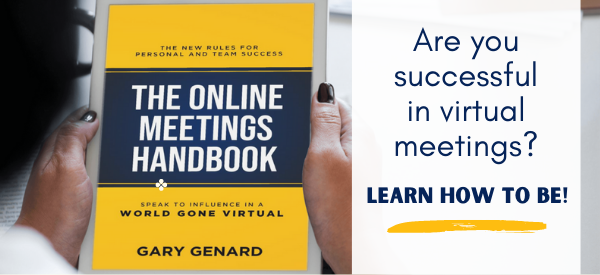Want to speak for leadership and get your voice heard? Learn these 4 characteristics of an influential speaker!
When you speak to others, you have the power to create influence. Speeches, presentations, lectures, and pitches—even remarks at meetings—can change people’s lives for the better. Speaking in public has always been an avenue to inspire ideas, to motivate, and to positively alter behavior.
As a speaker or spokesperson, then, you have a responsibility not only to be a skillful presenter. You must be genuinely committed to your ideas and getting them across to listeners. That’s the essence of public speaking! If you want your voice to be heard, your ability to connect with people in as important—or more important—than your platform skills.
Be the kind of speaker and leader you're capable of being! Get my Free ebook, "High-Impact Speaking: The Leader's Guide to Presenting with Integrity and Influence."
Four Important Elements to Speak for Leadership
Below are four important elements for speaking for leadership. Make them part of your speaking persona. In addition to improving your overall communication skills, they are vital characteristics for becoming an influential speaker.
1. Credibility. Whatever the topic on the agenda, audience members have the right to ask themselves: “Why should I listen to this person?” So, you always need to demonstrate your experience, expertise, or sheer passion for your topic. Mention the credentials that are a testament to your ability to speak on this subject.
Want to build credibility and earn trust with stakeholders? Get my Free ebook, "12 Easy Ways to Achieve Presence and Charisma."
Don't be boastful; but don't shy away from this responsibility either. It will help "open the doors to influence" on the part of the listeners. And it needs to be done immediately—and that means knowing what do within the first 60 seconds of your presentation. Once the audience understands that you know what you're talking about, they will be able to relax and listen.
Want this article in a handy cheat sheet? Get it here!
2. Honesty. Even though you may think of yourself as an honest person, there’s a different type of honesty that needs to take place in a speech or presentation. It’s the kind that comes from allowing yourself to be metaphorically naked on stage. When we lack confidence in ourselves as presenters, we usually try to be something (or someone) different; we wear a mask. Listeners can sense this; and once they do, they will tune you out.
To be influential, you must show your audience your true self. If you’re thinking that letting your guard down will make you vulnerable, you’re right. But vulnerability is actually an important part of being an honest and influential speaker. When an audience senses that you’re not hiding anything from them—that you’re human just like them—they will more likely empathize with you, like you more, and be more willing to listen to what you say.
Do you consider yourself an exceptional communicator? Want to learn how? Get my Free cheat sheet, "Leadership Skills: 10 Focusing Techniques for Public Speaking."
3. Audience-Centered. As natural as it is to be concerned with your performance and “looking good,” to be influential you need to do the opposite. As human beings, we all interpret the world according to our responses to it. Effective speakers, on the other hand, take a different road: they learn to judge a speech’s success by its impact on the audience.
To do so is to practice "living in the audience's world." From the moment you start to conceive of a presentation, to the last word in delivering it, place listeners front and center in your thoughts. Try to understand not only what they need to hear, but how they need to hear it. Practice making your points in terms audiences can relate to, based on who they are and how they will most likely respond to what you're saying. And of course, look them in the eye. Doing so shouldn't make you nervous —it should allow you to make the vital connection needed.
Want more on the skills you need to excel at public speaking? Grab my book, How to Give a Speech: Easy-to-Learn Skills for Successful Presentations Speeches, and Pitches.
4. Action-Oriented. Many presenters make a fundamental mistake: they concern themselves primarily with content, rather than the people hearing it. Your true love is the audience, and it’s them you should be trying to woo. That means thinking hard about the action you want them to take as a result of your speech for their benefit.
This should actually make your presentation much easier. Once you know who your listeners are (see item #3, above), decide on your specific purpose. Now as you put together your content, include only material that will help you accomplish that purpose. Anything else doesn’t belong in your speech. Think about what you want the audience to think, feel, or do as a result of your talk. It’s one of the best ways to quantify the success of the encounter.
The four elements above have one thing in common: a sense of responsibility where public speaking is concerned. Think of your presentation as an opportunity to use who you are and what you know to make a connection with your audience. If you do, you’ll more likely fulfill your task of changing their thinking for the better and compelling them to positive action. That’s the task you’re there to achieve.
You should follow me on Twitter here.
Succeed in today's virtual environment! Click on my NEW BOOK below:
Gary Genard is an actor, author, and expert in public speaking training and overcoming speaking fear. His company, Boston-based The Genard Method offers live 1:1 Zoom executive coaching and corporate group training worldwide. In 2021 for the eighth consecutive year, Gary has been ranked by Global Gurus as One of the World’s Top 30 Communication Professionals. He is the author of the Amazon Best-Seller How to Give a Speech. His second book, Fearless Speaking, was named in 2019 as "One of the 100 Best Confidence Books of All Time." His latest book is The Online Meetings Handbook, now available at The Genard Method and at Amazon. To know more about TGM's services, Contact Gary here.





